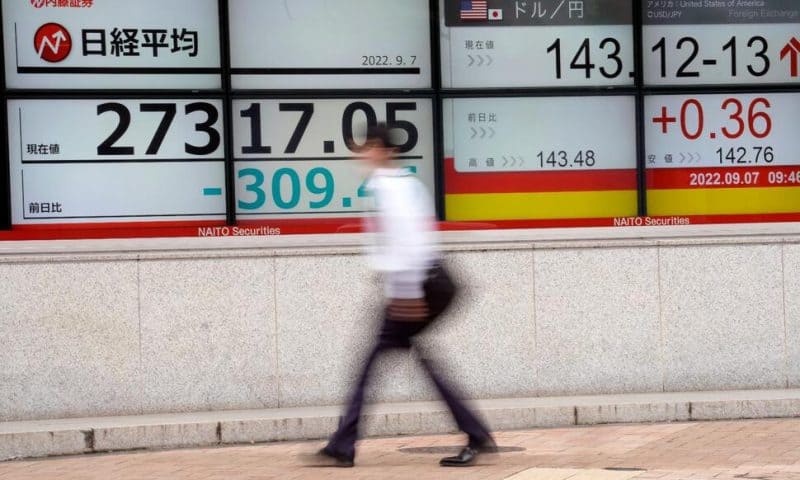A survey by the Bank of Japan has found business sentiment among large manufacturers worsened for the third straight quarter.
TOKYO — Business sentiment among large manufacturers worsened for the third straight quarter, a Bank of Japan survey showed Monday, as the world’s third largest economy grapples with rising costs, a weakening currency and slowing global demand.
The headline measure for the “tankan,” measuring sentiment among large manufacturers, was plus 8, down from plus 9 the previous quarter.
The tankan measures corporate sentiment by subtracting the number of companies saying business conditions are negative from those responding they are positive.
Japan has been trying to fight deflation in recent years and has kept interest rates at near zero. Prices have been rising, but at a more modest pace than in other major economies, and the Bank of Japan has not followed the lead of other central banks in raising interest rates.
That means the yen has weakened relative to the surging dollar. That makes exports of autos and electronics more competitive in overseas markets and raises the value of overseas earnings of big corporations like Toyota Motor Corp. But it also hits their bottom lines in sharply higher costs.
The war in Ukraine has added to the problems for a resource-poor nation that imports almost all its oil, gas and coal.
The dollar bought about 145 yen on Monday, up from 130-yen levels a few months ago and about 110 yen a year earlier.
The tankan survey found that sentiment among large nonmanufacturers, such as service providers, improved to 14 from 13. That reflects a revival in the services sector as precautions against the spread of COVID-19 are relaxed.
Japan has struggled with a sluggish economy for decades, but the stagnation worsened over the last two years with cutbacks in travel and supply shortages caused by the pandemic.
After keeping its borders virtually closed for most of the past two years, Japan plans to begin allowing visa-free travel later this month, to tap into demand from foreign visitors eager to enjoy bigger purchasing power thanks to the cheaper yen.
In a speech to lawmakers on Monday, Prime Minister Fumio Kishida promised to make the economy his top priority and promote measures that “maximize the merit of the weaker yen” to collect some 5 trillion yen ($34.5 billion) annually that may be spent by foreign tourists in Japan.

